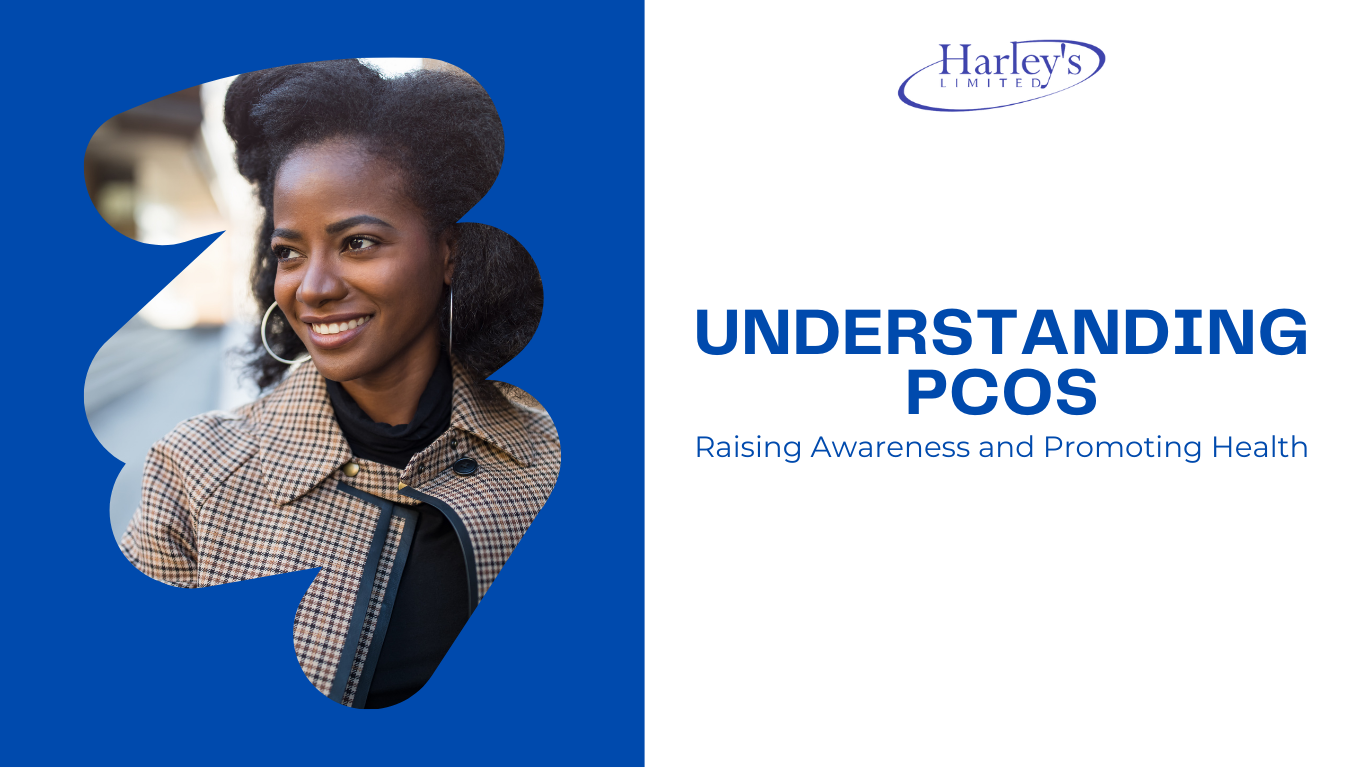Understanding PCOS: Raising Awareness and Promoting Health
Polycystic Ovary Syndrome (PCOS) is one of the most common hormonal disorders affecting women of reproductive age, yet it remains widely misunderstood and underdiagnosed. PCOS awareness is crucial to improving early detection, effective management, and the overall quality of life for those affected by it. In this article, we will explore what PCOS is, its symptoms, causes, and the importance of raising awareness about the condition.
What is PCOS?
PCOS is a complex hormonal disorder that affects approximately 6-12% of women worldwide, according to the CDC (Centre for Disease Control and Prevention). It is characterized by a combination of symptoms, including irregular menstrual cycles, elevated levels of androgens (male hormones), and the presence of multiple cysts on the ovaries. PCOS can lead to a range of complications, from infertility and metabolic issues to mental health concerns.
What are the related symptoms of PCOS?
The symptoms of PCOS can vary considerably from one individual to another, but some of the most common signs include:
Irregular Periods: Women with PCOS often experience infrequent, prolonged or missed periods due to irregular ovulation.
Excess Androgens: Elevated levels of androgens can result in physical symptoms such as excessive facial and body hair (hirsutism), severe acne and thinning scalp hair.
Polycystic Ovaries: The ovaries may become enlarged and contain multiple small fluid-filled sacs, which can be seen on an ultrasound. However, not all women with PCOS have visible cysts.
Weight Gain or Difficulty Losing Weight: Many women with PCOS struggle to manage their weight due to insulin resistance, a common feature of the condition.
Infertility: PCOS is one of the leading causes of infertility, as irregular ovulation can make it difficult for women to conceive.
The Root Causes of PCOS
The exact cause of PCOS remains unclear, but several factors are believed to contribute to its development:
Genetics: A family history of PCOS can increase the likelihood of developing the condition, suggesting a genetic component.
Insulin Resistance: Many women with PCOS have insulin resistance, meaning their bodies have difficulty using insulin effectively. This leads to higher insulin levels, which can increase androgen production and exacerbate PCOS symptoms.
Hormonal Imbalance: Elevated levels of androgens, such as testosterone, disrupt the normal function of the ovaries, preventing regular ovulation.
The Impact of PCOS on Health
PCOS can have far-reaching effects on a woman’s health, extending beyond the reproductive system. Women with PCOS are at higher risk for several long-term health conditions, including:
Type 2 Diabetes: Due to insulin resistance, women with PCOS have a higher likelihood of developing type 2 diabetes later in life.
Cardiovascular Disease: Studies have shown that women with PCOS are more susceptible to heart disease, high blood pressure and unhealthy cholesterol levels.
Endometrial Cancer: Irregular or absent periods can lead to a build-up of the uterine lining, increasing the risk of endometrial cancer over time.
Mental Health: PCOS can also have a significant impact on mental health, leading to increased rates of anxiety, depression and body image concerns due to visible symptoms such as acne and excessive hair growth.
Importance of PCOS Awareness
Despite its prevalence, PCOS remains underdiagnosed, with many women going years without a proper diagnosis. Raising awareness about the condition is vital for early detection and intervention. Increased awareness can lead to:
Early Diagnosis and Treatment: Many women are unaware of the connection between their symptoms and PCOS. By improving public understanding of PCOS, women are more likely to seek medical advice early on and receive a diagnosis sooner.
Better Management of Symptoms: With proper medical guidance, lifestyle changes such as a healthy diet, regular exercise, and medications like hormonal birth control or insulin-sensitizing drugs can help manage PCOS symptoms.
Reducing the Stigma: The physical symptoms of PCOS, particularly excessive hair growth and weight gain, can cause significant distress for women. Raising awareness can help combat the stigma and offer support to those affected.
Promoting Research: More awareness can lead to increased research funding for better treatments and potential cures. As our understanding of PCOS grows, so too will the options available for managing the condition.
Conclusion
Polycystic Ovary Syndrome is a widespread yet underrecognized condition that affects millions of women worldwide. The importance of PCOS awareness cannot be overstated; by spreading knowledge and encouraging open conversations, we can help women seek an earlier diagnosis, better manage their symptoms, and improve their overall health. For those who suspect they may have PCOS, reaching out to a healthcare provider for screening is the first step towards managing this complex condition.
For more information and support on PCOS, organizations such as the PCOS Awareness Association and the American College of Obstetricians and Gynaecologists provide valuable insights and advice on PCOS.
References
- Cleveland Clinic, Polycystic Ovary Syndrome (PCOS), https://my.clevelandclinic.org/health/diseases/8316-polycystic-ovary-syndrome-pcos
- Healthline, what is PCOS, https://www.healthline.com/health/polycystic-ovary-disease
- WHO, Polycystic Ovary Syndrome, https://www.who.int/news-room/fact-sheets/detail/polycystic-ovary-syndrome

